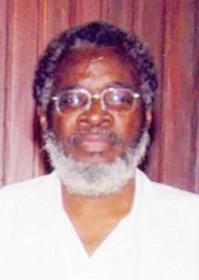Government has drafted legislation that would allow non-capital punishment being available for various categories of convicted murderers, but while this indicates a concession to human rights advocacy and more recently international pressure, the death penalty will remain on the books.

There is no move towards a moratorium on the death penalty yet, Head of the President Secretariat Dr. Roger Luncheon said yesterday at his weekly post-cabinet briefing, but he announced that the administration is willing to make some concessions.
The Criminal Law Offences (Amendment) Bill was tabled in Parliament yesterday though a copy of the legislation was not made available to parliamentary reporters. The specifics of the bill are not yet known, but it will allow judges discretion not to impose the capital punishment on some persons convicted of murder. According to Luncheon, “various identified categories of convicted murderers”.
What the legislation suggests is some movement in another direction, Luncheon said, noting that the lack of discretion which was imposed on judges prior to its drafting would be eased. He emphasized that the legislation deals with specifics, adding that there would be specified conditions under which it is applied and for murders committed in specific contexts and under specific circumstances.
The administration here has been under pressure to abolish the death penalty and while Luncheon insisted that no such steps are being taken the new legislation is significant; it means the death penalty would no longer be mandatory in some cases. “…It is an unnecessary stretch of the imagination to make some inexorable linkage between the abolition of the death penalty and this legislation so I would like to divorce any such thought from your minds because it was never our intention to so do in the absence of the appropriate consultation with Guyanese”, Luncheon said.
According to him, the conventional wisdom out there is that all murders should not be treated the same way and the administration is thinking the same way. Luncheon said they are willing to concede that not every murderer needs to be hung but he noted that the government is also not willing to go to the other extreme and say no murderer should be hung. “…this is to go way beyond our thinking on this matter”, he added.
The abolishment of the death penalty here has been the subject of ongoing debates and recently, several countries proposed a moratorium when Guyana appeared before the United Nations Human Rights Council in the framework of the Universal Periodic Review (UPR) under which the human rights record of each state is extensively reviewed every four years.
More specifically, the UK in its recommendations to Guyana at the UPR had suggested that Guyana sets a formal moratorium on executions and removes all legal provisions for mandatory death sentences with a view to abolishing the death penalty. But this country resisted the calls saying that widespread consultations were needed.
Guyana could not commit to providing a response at the time to three main issues: corporal punishment, abolishing the death penalty and decriminalizing same sex relationships between consenting adults.
Speaking on the three issues which Guyana deferred its response on, Foreign Affairs Minister Carolyn Rodrigues-Birkett had said the local delegation was not in a position to make any commitment “since we require adequate consultations with various sections of the society”. She noted that the country did commit to holding various consultations with stakeholders to follow-up on the recommendations of the UPR process.




